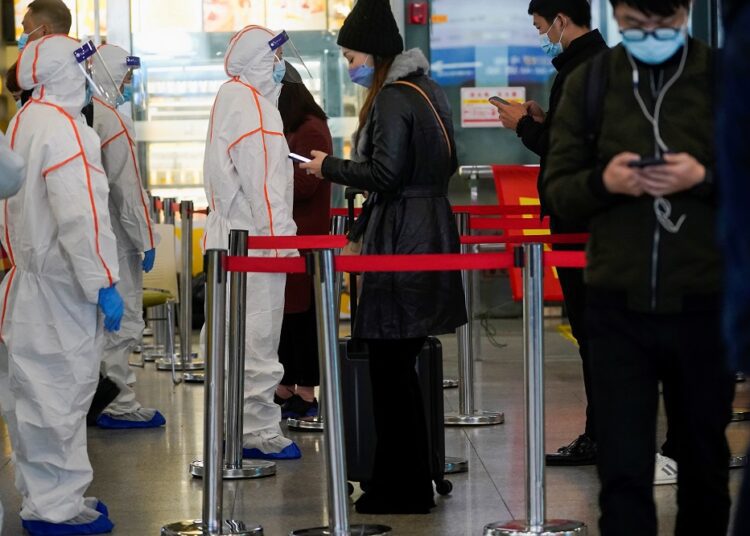LONDON – European and Asian countries tightened travel curbs on Friday after a new and possibly vaccine-resistant coronavirus variant was detected in South Africa, with the EU, Britain and India among those announcing stricter border controls.
Britain banned flights from South Africa and neighbouring countries and asked British travellers returning from there to quarantine, while European Commission chief Ursula von der Leyen said the EU also aimed to halt air travel from the region.
Scientists are still learning about the variant, first identified at the start of this week, but the news pummelled global stocks and oil amid fears what new travel bans would do to already shaky economies across southern Africa.
The variant has a spike protein that is dramatically different to the one in the original coronavirus that Covid-19 vaccines are based on, the UK Health Security Agency said, raising fears about how current vaccines, successful against the more familiar delta variant, will fare.
“As scientists have described, (this is) the most significant variant they’ve encountered to date,” British Transport Secretary Grant Shapps told Sky News.
The World Health Organization is to hold a meeting in Geneva at 11:00 GMT. Experts will discuss the risks it presents and if it should be designated as a variant of interest or variant of concern, WHO spokesperson Christian Lindmeier said.
Nearly 100 sequences of the variant have been reported, and early analysis shows it has “a large number of mutations” requiring further study, Lindmeier said according to Reuters.
One epidemiologist said it may be too late to tighten travel curbs.
“I think we have to recognise that most likely this virus is already in other places. And so if we shut the door now, it´s going to be probably too late,” said Ben Cowling of the University of Hong Kong.
South Africa will speak to British authorities to try to get them to reconsider their ban, the foreign ministry in Pretoria said.
“Our immediate concern is the damage that this decision will cause to both the tourism industries and businesses of both countries,” Foreign Minister Naledi Pandor said in a statement.
The variant, called B.1.1.529, has also been found in Botswana and Hong Kong, according to the UK Health Security Agency.






Discussion about this post